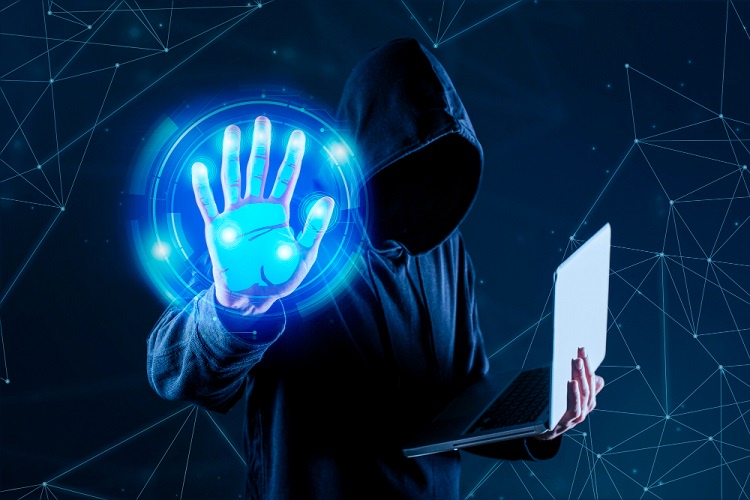In the present interconnected world, where data infringements and cyber-attacks are becoming increasingly common, it is paramount to have strong cybersecurity measures. The advancement in cybercrimes can also influence national security in the future, which is a severe issue to be taken care of. Therefore, the government and various reputed organizations are hunting for ethical hackers to protect their digital assets.
Ethical hacking concerns using authorized methods to pinpoint vulnerabilities in computer systems, webs, or applications to improve security measures. In this blog, we will get an overview of ethical hacking, its importance in the cybersecurity landscape, and how it differs from malicious hacking.
If you want to pursue a career in cybersecurity then get registered in a Certified Ethical Hacking course. This shall help you seek an in-depth understanding and enhance your skills in the field.
What is an Ethical Hacking?
Ethical hacking is also known as “white hat” hacking. It is the method of legally and responsibly trying to breach computer systems or networks to discover vulnerabilities. It replicates the processes of malicious hackers to recognize the possible drawbacks of the system. By doing so, they adopt identical strategies and tools operated by unethical hackers and use them explicitly to address the vulnerabilities and resolve them. After which they improve the security before the malicious hacker can manipulate them. Thereby, finally helping organizations to strengthen their securities and safeguard sensitive data.
To be precise, hacking is identifying voids in the system and manipulating them, to get illicit access to undertake harmful actions. For example, an attacker who gains access, past the security might erase or steal critical data that be used to harm the organization or a person.
Importance of Ethical Hacking in Cybersecurity
In cybersecurity, ethical hacking plays a crucial role for multiple reasons. With the increase in cyber-attacks and their successful attempts, ethical hacking has become undeniably important in the field of cybersecurity. Cyber attacks could lead to significant financial losses, damage to reputation, and even legal liability. For example, the Uber website was recently hacked, which resulted in the confidential details of around 50 million people being leaked.
Some reasons why ethical hacking is important:
- First, it identifies and restores sensitivities in the system of organizations, blocking possible data violations or unauthorized access. As it is said, it is better to guard before any crisis emerges.
- Second, it complies organization with various industry regulations and security standards, i.e., the Payment Card Industry Data Security Standard (PCI DSS) or the General Data Protection Regulation (GDPR).
- Furthermore, by establishing a commitment to safeguarding sensitive data, it enables organizations to build trust with their customers and stakeholders.
These proactive approaches to security also assist in preventing not only data violations but also minimizing the effect of successful attacks, and rescuing overall cybersecurity risks.
Difference Between Ethical Hacking & Malicious Hacking
Ethical hacking and malicious hacking are the two distinct practices that take centre stage in the realm of cybersecurity. Both implicate infiltrating computer systems, networks, or applications, the intent, and outcomes are what differ immensely. Ethical hacking serves to help organizations in enhancing their security system and secure digital assets against cyber threats. On the other hand, malicious hacking is associated with cybercrimes that involved unauthorized access, data breaches, and harmful activities.
Some points to clarify how ethical hacking differs from malicious hacking are discussed below:
1. Authorization and consent:
- Ethical hacking is conducted only with the consent of the owner of the system or the network being tested. Without authorization, the kind of hacking is stated as malicious hacking.
- Ethical hackers are also known as white hat hackers who hack with the authorization of the organization. Whereas, malicious hackers commonly known as black hat hackers practice it without any approval or legal consent.
2. Intent and Motivation:
- Ethical hacking is driven by the intention to improve cybersecurity defences. Malicious hacking is done with malicious intent.
- Ethical hackers simulate real-world attacks to identify weaknesses in the system. Malicious hackers' motivation varies depending upon their benefit, financial profit, political agendas, or causing damage to systems or networks.
3. Professionalism and Ethics:
- Ethical hackers stick to professional norms and a code of ethics. They conduct hacking activities responsibly, assuring the confidentiality, integrity, and availability of the details they encounter during their engagements. Malicious hackers operate without any ethical considerations or professional standards. They violate laws, exploit vulnerabilities, and engage in causing harm to individuals, organizations, or society.
- The trust and confidence of organizations are maintained by ethical hackers, respecting privacy, following rules, and giving detailed reports on vulnerability and suggestions for improvement Hackers involved in malicious activity disregards ethical codes, privacy, and the rights of others by stealing sensitive information, committing financial fraud or disrupting critical systems.
Conclusion
Ethical hacking is a challenging but rewarding profession that can help to combat cybercrime and enhance data security. Learning ethical hacking through a certified ethical hacking course and acquiring ethical hacking certification, can help one to unleash the power of white hat security and make a positive impact on the world.


No comments yet